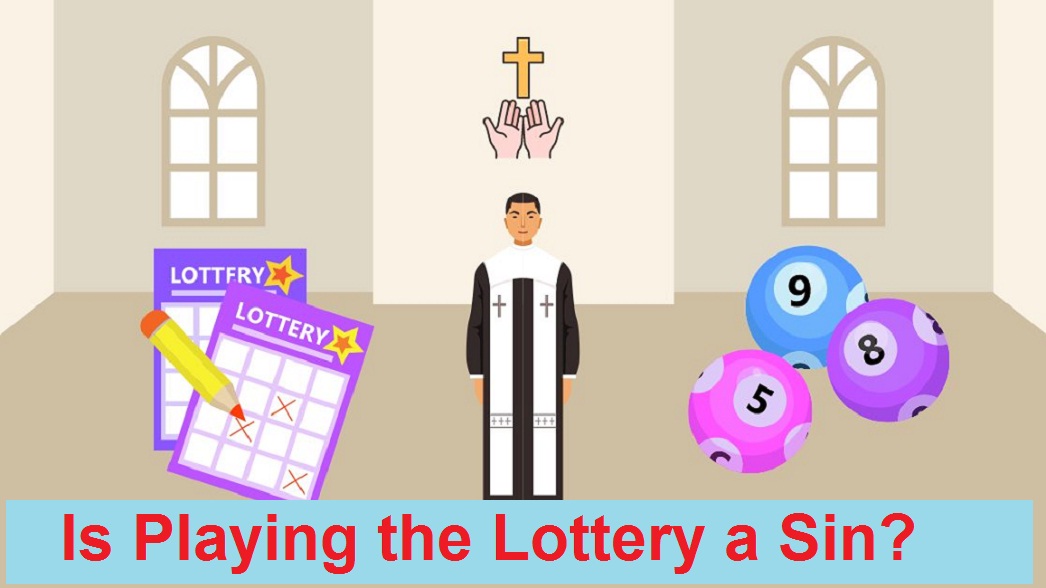Contents
Is Playing the Lottery a Sin?
The allure of playing the lottery is undeniable. The chance to win a life-changing sum of money with a single ticket purchase is an enticing prospect for many. However, questions regarding the morality of gambling often arise, leaving people pondering, “Is playing the lottery a sin?” In this comprehensive article, we will explore this topic from various angles, examining religious perspectives, ethical considerations, and societal implications. Join us on this journey as we unveil the truth about gambling and its moral implications.
The Historical Context of Gambling
Throughout history, gambling has been a prevalent form of entertainment in various societies. From ancient civilizations to modern times, the human fascination with games of chance has endured. The practice of playing the lottery can be traced back to early lotteries held in China during the Han Dynasty, around 200 BCE. These lotteries were organized to finance government projects, such as the construction of the Great Wall.
Understanding the Various Perspectives
The Religious View
Religious perspectives on gambling vary across different faiths. While some religious traditions strictly condemn any form of gambling, others adopt a more nuanced stance. In Christianity, for instance, opinions on gambling range from outright condemnation to acceptance under certain circumstances. Some argue that gambling contradicts the principles of stewardship and responsible financial management, thus making it sinful. However, others argue that as long as it does not lead to addiction, financial ruin, or harm to others, playing the lottery can be seen as a harmless form of entertainment.
The Ethical Dilemma
Beyond religious considerations, the ethics of gambling also come into play. Ethicists debate whether playing the lottery is morally acceptable due to its association with addiction, financial exploitation, and societal inequalities. On one hand, opponents argue that gambling preys on vulnerable individuals, enticing them with false hope and draining their financial resources. On the other hand, proponents contend that individuals have the autonomy to engage in recreational activities, including gambling, as long as it does not harm others.
Exploring the Sinful Aspects
The Temptation of Greed
One of the primary concerns raised by opponents of gambling is the temptation of greed it fosters. The pursuit of wealth through games of chance can lead to avarice, causing individuals to prioritize material gain over more virtuous pursuits. However, it is essential to note that the morality of an action is not solely determined by the potential consequences but also by the intentions and actions of the individuals involved.
Addiction and its Consequences
Another critical consideration when evaluating the morality of playing the lottery is the potential for addiction. Gambling addiction is a serious issue that can lead to severe financial and psychological consequences for individuals and their families. The addictive nature of gambling raises concerns about the exploitation of vulnerable individuals and the erosion of personal and familial well-being.
In the end, whether playing the lottery is considered a sin largely depends on one’s personal beliefs and the moral framework they adhere to. While religious teachings and ethical considerations shed light on the potential pitfalls of gambling, it is crucial to approach the topic with empathy and understanding. Responsible engagement with the lottery, combined with awareness of the potential risks, can help individuals make informed decisions about their participation. Ultimately, the choice to play the lottery rests with the individual, guided by their personal convictions and value.
FAQs: Is Playing the Lottery a Sin?
- Is playing the lottery a sin according to religious teachings?
- The answer to this question varies depending on the religious perspective. Some religious traditions consider lottery sinful, while others take a more permissive view, emphasizing responsible participation.
- Can playing the lottery lead to addiction?
- Yes, gambling, including playing the lottery, can lead to addiction. It is essential to be aware of the signs of addiction and seek help if necessary.
- Are there any ethical concerns associated with playing the lottery?
- Ethical concerns surrounding the lottery include issues of exploitation, societal inequality, and the potential harm caused by addiction.
- Is playing the lottery a responsible use of money?
- Responsible use of money involves thoughtful consideration of financial goals and priorities. While playing the lottery can be seen as a form of entertainment, it is essential to balance it with responsible financial management.
- Are there alternative forms of entertainment that do not involve gambling?
- Yes, numerous alternative forms of entertainment exist that do not involve gambling. Engaging in hobbies, sports, reading, or spending time with loved ones are just a few examples.
- What steps can be taken to mitigate the potential harm of gambling addiction?
- Educating oneself about responsible gambling practices, setting limits on time and money spent on gambling, and seeking support from professional organizations that specialize in addiction treatment are important steps in mitigating the potential harm of gambling addiction.

